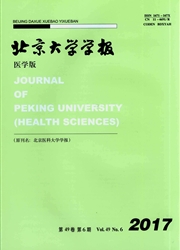

 中文摘要:
中文摘要:
严重急性呼吸综合征(Severe acute respiratory sydrome,SARS)是由SARS冠状病毒(SARS-coronavirus,SARS-CoV)引起的传染性强、病死率高的疾病。其传播的主要途径是通过近距离呼吸道飞沫传播。目前,对于SARS的致病机制和预防治疗正在研究中。SARS发病的潜伏期约为3-10d。与其他病毒不同,SARS-CoV在感染早期的患者体内病毒数量相对较少,给疾病的早期诊断带来了困难。因此,需要采用高灵敏度的方法检测才可能避免假阴性结果,并能及时准确地发现疫情,报告给政府协调部门,尽早采取有效的防控措施。鉴于SARS给人类健康和社会经济带来的巨大危害,准确有效地检测疑似人群和环境样本,对于避免误诊、漏诊,尽早采取隔离措施防止病毒传播,以及制定正确的诊疗方案具有重要意义。灵敏、可靠、便捷的检测方法正是布好这第一道防线的重中之重。
 英文摘要:
英文摘要:
An enhanced real-time polymerase chain reaction (ERT-PCR) assay to detect the coronavirus associated with severe acute respiratory syndrome (SARS-Cov) has been designed for detection of SARS-Cov with high sensitivity and easy-to-interpret results, in which a target gene pre-amplification step preceded TaqMan real-time fluorescent PCR. The limit of detection of the ERT-PCR method was 10^-2 higher than the standard real-time PCR assay and 10^-7 higher than conventional PCR methods. The increased sensitivity of the assay would have major benefits in screening suspected SAILS patients reapidly and efficiently and may help control the spread of SARS and other infectious diseases during future outbreak.
 同期刊论文项目
同期刊论文项目
 同项目期刊论文
同项目期刊论文
 期刊信息
期刊信息
